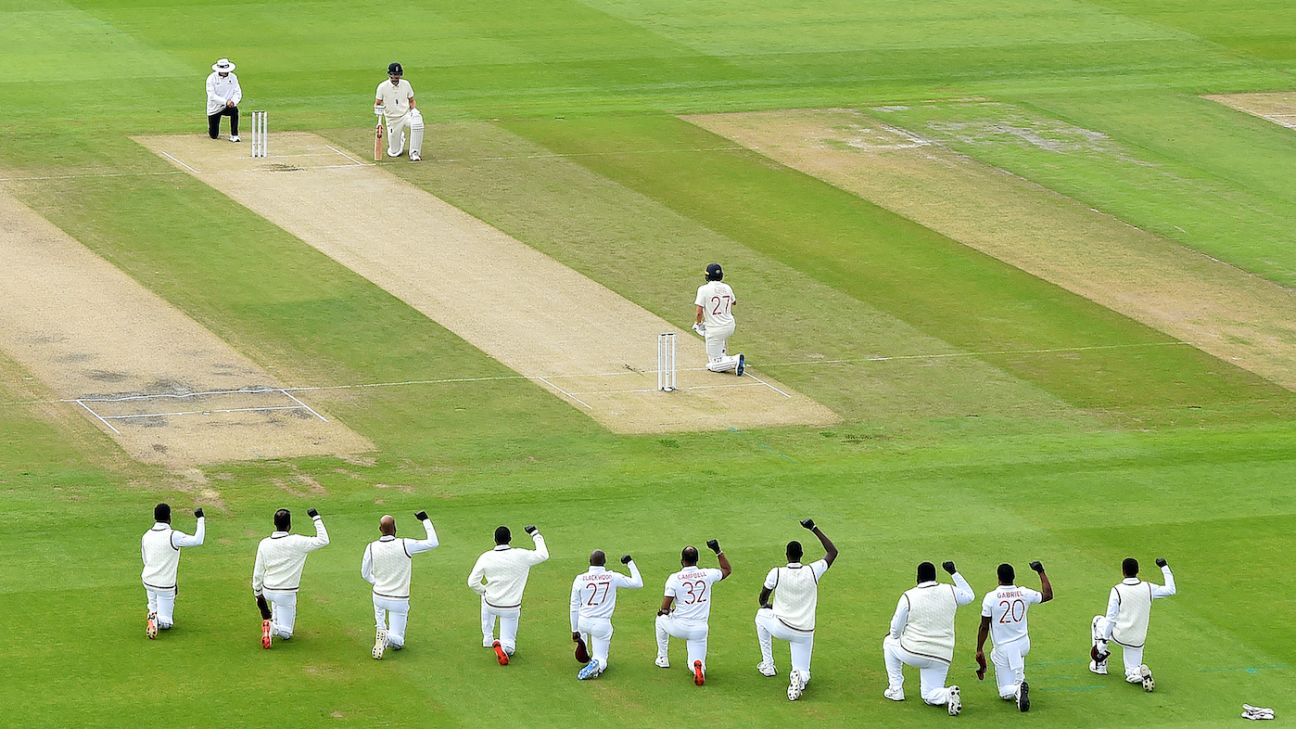Every player, official and administrator in the English game will be obliged to undergo an education programme in an attempt to rid the sport of racism and boost inclusivity and diversity.
The training programme is to be brought in following a damning survey conducted by The Professional Cricketers’ Association (PCA, the players’ union) which revealed the extent of racism within the game. That survey revealed that 58 percent of respondents from a BAME (Black, Asian and minority ethnic) reported experiencing or witnessing racism, with 45 percent of those instances said to have come from another player.
The PCA will launch the programme to players in March with the aim of raising awareness into cultural differences and unconscious bias in the context of racism in cricket. All players, be they international or domestic, men or women, will be expected to undertake the training.
At the same time, an anonymous phone line will be set up to enable instances of racist or exclusionary behaviour to be reported.
Plans to expand the training further – to administrators and officials – have not currently been finalised, but the aim is to reach all such groups in the coming months.
The move comes as the game comes to terms with a series of revelations pertaining to racism within the sport, which in turn have arisen from the growth of interest in the Black Lives Matter movement following the murder of George Floyd in America. Various bodies within the game – not least Yorkshire and the ECB – are currently embroiled in legal action (with Azeem Rafiq and John Holder and Ismail Dawood respectively having initiated legal action on the grounds of discrimination), while the testimony of non-white players in the game has been shocking.
As a result of these stories, the PCA commissioned a survey towards the end of 2020. In total, 13 percent of respondents said they had experienced racism, but that figure rose to 58 percent of respondents when including only those from a BAME background who said they had either experienced or witnessed racism. That equates to 14 out of 24 respondents from a BAME background.
Of those players who had experienced or witnessed racism, 45 percent said that that the behaviour had come from another player, while 39 percent of respondents said the abuse was either from spectators or on social media.
When asked what the intent was in the instances of racism, 62 percent believed it was disguised as “banter” with 70 percent expressing a view that increased education would have a positive impact on players’ attitudes towards diversity and inclusion within the professional game.
The survey does require some caveats, though. Notably, around 600 questionnaires were issued across the professional game to men and women, county and international, academy and recently-retired players. However, 173 responses – about 29 percent – is a modest return and hints, perhaps, at some reluctance to engage with the process.
“It’s the first time we’ve done this,” Rob Lynch, the PCA chief executive, said. “So it’s a start and something we can build on.” The PCA aim to repeat the survey each year.
Equally, 11 white respondents – of which eight are current professionals – reported experiencing racism. That is to say, they felt they were discriminated against for being white. Given the dominance of white players in the professional game, those are figures that will surely beg further questions.
The PCA education programme follows a range of measures announced recently by the ECB aimed at improving inclusivity within the sport. These include a new anti-discrimination code, which will be introduced ahead of the 2021 season, and a Forum for Race in Cricket enabling people to come forward in confidence so the ECB can listen to and learn from people’s experiences in cricket.
An independent Commission for Equality in Cricket will also be launched shortly to assess evidence of inequalities and discrimination within cricket and advise on further actions needed to tackle them.
The education programme also aims to address gender issues, workplace banter and inappropriate non-verbal behaviour. Furthermore, it aims to raise awareness of unconscious bias and encourage the challenging of non-inclusive behaviours.
While the measures introduced to combat racism currently stop short of those introduced to combat other issues within the game – it is, for example, compulsory to sit modules on corruption and drugs before being registered to play – it is likely that this will become the case in the coming years. The PCA are understood to be working on an on-line module of the inclusivity course and may well introduce such training as part of their annual Rookie Camp, which provides all new players with an outline of what is required of them as professional players.
“Racism in the game is unacceptable and the game needs to take action,” Lynch continued. “Players have asked for education and clarity on the reporting of discriminatory behaviours and for the development of a code of conduct, which we will deliver on this year. We will continue to work with the ECB and other key stakeholders in this area to do more, and simply be better.
“There is plenty of work to be done in the fight for equality, this is about effecting real change and we will continue to strive to ensure that professional cricket is a game for all.”
George Dobell is a senior correspondent at ESPNcricinfo
